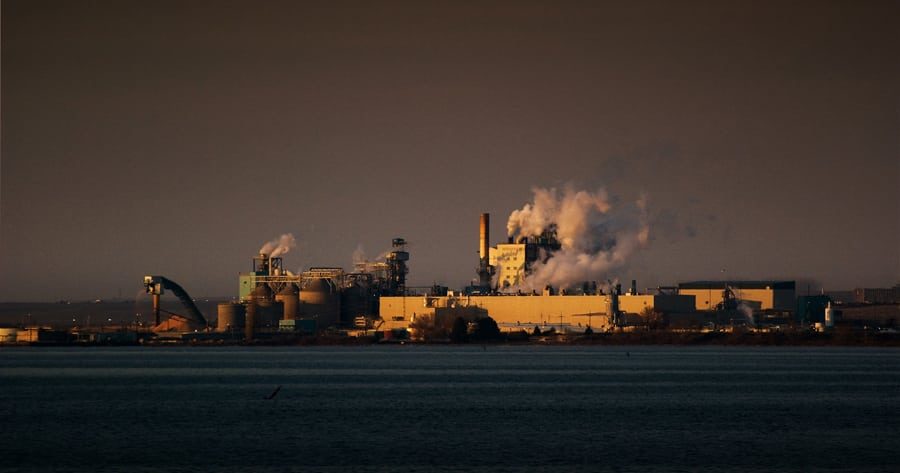
Home » Wallula’s Boise Paper mill plans $150 million in improvements
Wallula’s Boise Paper mill plans $150 million in improvements

November 15, 2017
New machine can produce 400,000 tons a year of corrugated paper products
A $150 million investment at the Boise Paper plant in Wallula will replace one machine for another, nearly doubling the mill’s output.
Port of Walla Walla Executive Director Patrick Reay described the change as transitioning from “white copy paper to brown goods” like cardboard.
The industry describes it as a conversion from a product called uncoated freesheet to coated one-side grades.
The paper machine currently produces 200,000 tons per year at the Wallula plant on Highway 12, about 16 miles southeast of Pasco.
The replacement machine is considered high-performance and has the ability to produce 400,000 tons per year of 100 percent virgin Kraft linerboard, used for the creation of corrugated products.
The mill is owned by Packaging Corporation of America, or PCA.
Reay recently returned from a trip to PCA’s corporate headquarters in Lake Forest, Illinois, with Walla Walla County Commissioner Jim Johnson and port President Mike Fredrickson.
The group met with PCA chairman and CEO Mark Kowlzan.
Reay said the visit with the CEO allowed them to “say we’re here to support, encourage and assist in any way we can.”
Reay and the port sees the investment as a “job retention project.”
“Investing $150 million really protects and preserves the more than 650 jobs that are there, which are great family-wage jobs,” he said.
Boise Paper is the seventh largest employer in Walla Walla County.
The port is working to assist PCA in finding a temporary location for wood chip storage and re-establishing a private barge slip that hasn’t been used by Boise Paper in 20 years.
Reay said the company will need additional pulp and chip material, which will need to be brought upriver, to produce the cardboard it will now create.
The slip on the Columbia River has been silted in and is currently unusable.
Reay had no estimate for the timeline to dredge the water and get the slip functional.
As the company goes through the permitting process, the port is working with PCA on use of a high-dock facility at Burbank Industrial Park, which would allow chips to be offloaded and stored before being trucked to the mill.
“We think the mill’s a great community asset,” Reay said. “By producing cardboard, there may be some synergies with the Simplots, ConAgras and Lamb Westons of the world who use these products. There may be some cost savings to local companies who may, in turn, make reinvestments in their own facilities.”
The machine switchover will happen in spring 2018 and coincide with the company’s acquisition of Sacramento Container Corp., a $265 million deal pending regulatory approval that’s expected to happen before the end of the year.
Boise Paper is a division of PCA, which bought the plant in Walla Walla County four years ago. PCA remains the largest taxpayer in Walla Walla County, with a current assessed value of $175 million. The next closest taxpayer is Broetje Orchards, with an assessed value of $81 million. PCA’s Wallula plant represents three percent of the total assessed value for property in Walla Walla County.
The paper machine targeted for conversion will not produce at full capacity when first installed.
Its initial production is expected to be at 60 percent capacity, and will increase by the end of 2018, once additional parts are added, including a new headbox, forming section and shoe press. The eventual production will increase to 1,150 tons per day.
“At our current containerboard integration rate of 95 percent, the low-cost conversion of the No. 3 paper machine at our Wallula mill provides us with much needed linerboard capacity, allows us to integrate over 200,000 tons of containerboard to our Sacramento Container acquisition, and enables further optimization and enhancement of our current mill capacity and box plant operations. The conversion will significantly enhance the mill’s profitability and viability,” Kowlzan said.
The mill is expecting to incur shutdown charges of $20 million to $25 million in addition to $45 million to $55 million in depreciation of the asset. PCA expects to record charges of $25 million to $35 million in the third quarter of 2017.
During these adjustments, the No. 2 paper machine will keep producing 150,000 tons per year of the semi-chemical medium paper it currently creates.
“Throughout this transition, all customers will continue to receive the high-quality products and service they are accustomed to,” said Paul LeBlanc, PCA vice president of paper, in a news release.
Reay said the investment “solidifies Boise’s existence in Walla Walla County for another 60 years.”
PCA reported $5.8 billion in revenue last year, with a profit of $445.2 million. Its trading value on the NASDAQ is up 38 percent since November 2016.
It is the fourth largest producer of containerboard and corrugated packaging products in the United States, as well as the third largest producer of uncoated freesheet.
The Wallula plant is 60 years old and one of eight mills and 93 corrugated product plants operated by PCA.
Local News
KEYWORDS november 2017





